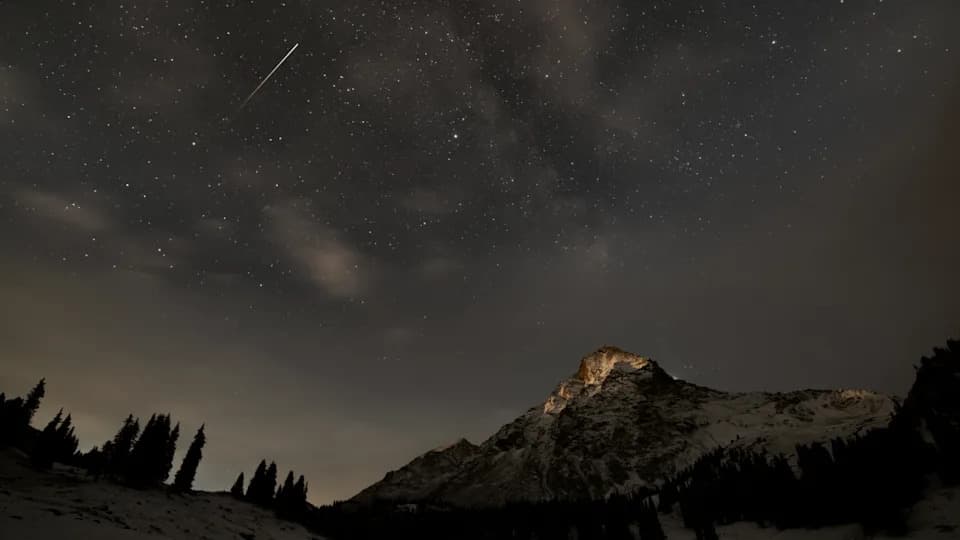The Leonid meteor shower will peak overnight from Nov. 16 into Nov. 17 as Earth moves through debris from comet Tempel-Tuttle. In central Pennsylvania, the display should be visible from about 10:16 p.m., with the best activity before dawn; some meteors may still appear on Nov. 18. Under dark, moonless skies, expect about 10–15 meteors per hour. Forecasters also warn of strong solar storms Tuesday and Wednesday that could spark northern lights and briefly affect communications — Wednesday may be the better night if clouds clear.
Leonid Meteor Shower Peaks Nov. 16–17 — Best Times and Viewing Tips

Leonid Meteor Shower Peaks Nov. 16–17
Stargazers have a strong chance this week to catch the annual Leonid meteor shower as Earth passes through debris left by comet Tempel-Tuttle. The shower is named for the constellation Leo, where the meteors appear to radiate from our perspective on Earth.
Forecasts indicate the display will remain active through Nov. 30, with peak activity expected overnight from Nov. 16 into Nov. 17. Observers in central Pennsylvania should begin watching at about 10:16 p.m., with the most meteors likely in the hours before sunrise. EarthSky.org also notes that some Leonids may still be visible during the early morning of Nov. 18.
What to expect
Under a dark, moonless sky, you might see roughly 10–15 meteors per hour, according to EarthSky.org. Rates will be lower in or near city lights.
Viewing tips
- Go to a rural location away from light pollution for the best view.
- Give your eyes 20–30 minutes to adapt to the dark; avoid looking at phones or bright lights.
- Lie back and look toward the general direction of Leo, but don’t fixate on the radiant — meteors can appear across the sky.
- Binoculars and telescopes are unnecessary; meteors are best enjoyed with the naked eye.
Aurora and space-weather alert
Forecasters have issued alerts for incoming strong solar storms that could produce colorful northern lights and temporarily disrupt communications across wide areas on Tuesday and again Wednesday night. Wednesday may offer a better chance to see aurora in many locations because heavy cloud cover is expected to clear during the day. Skywatchers should monitor local forecasts and space-weather updates before heading out.
Note: Check local conditions and safety notices — if communications are affected, follow official guidance.
Help us improve.



























